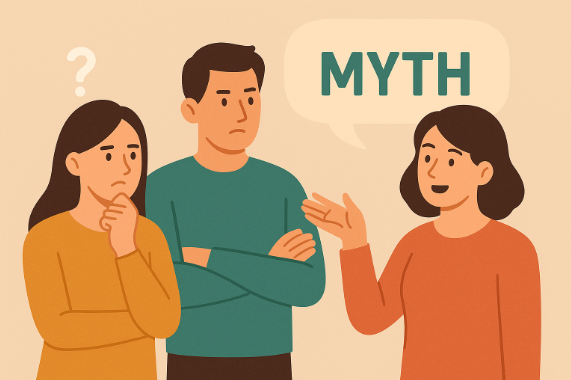Introduction
The DWP Christmas Bonus £800 is a seasonal payment from the Department for Work and Pensions to support eligible benefit claimants during the festive period. Traditionally, the bonus was only £10 and unchanged for decades. In 2025, it has been raised to £800 to reflect the ongoing cost of living pressures across the UK.
For many families and pensioners, this bonus provides crucial support with:
-
Christmas food and shopping
-
Winter heating and energy bills
-
Travel and family gatherings
According to consumer finance expert Martin Lewis,
“Every pound of government support makes a tangible difference, particularly at Christmas when expenses hit hardest.”
What is the DWP Christmas Bonus £800?
The DWP Christmas Bonus £800 is a one-off, non-taxable payment provided automatically to people receiving qualifying benefits in December 2025. It appears as a separate payment in your bank account, usually listed as “DWP XB.”
For many years, the Christmas Bonus was fixed at just £10, which had become largely symbolic rather than useful. In response to the ongoing cost of living crisis, the government has significantly increased the payment to £800. This is intended to help people afford essentials and enjoy a more comfortable festive season without falling into debt.
Is the Christmas Bonus the same for everyone?
Yes. Unlike some benefits, which vary depending on your personal circumstances, the Christmas Bonus is a flat payment of £800 for everyone who qualifies. This makes it straightforward, fair, and easy to understand.
Who is eligible for the DWP Christmas Bonus £800?

Not everyone in the UK is entitled to this payment. Eligibility is tied to whether you receive one of the qualifying benefits during the “qualifying week,” which is usually the first full week of December.
Which benefits qualify for the Christmas Bonus £800?
If you are receiving one of the following, you should automatically qualify:
-
State Pension (basic or new)
-
Employment and Support Allowance (income-related only)
-
Jobseeker’s Allowance (income-based only)
-
Disability Living Allowance (DLA)
Do you need to be claiming before a certain date?
Yes. The bonus is only paid if you are receiving one of the above benefits during the official qualifying week. If you applied for a benefit but it is not awarded until after this period, you will not receive the Christmas Bonus.
Can you still receive the bonus if you are working?
Yes. Many people work part-time or even full-time while claiming certain benefits. As long as you are eligible for one of the qualifying benefits, your employment status does not stop you from receiving the bonus.
When will the DWP Christmas Bonus £800 be paid?
The Department for Work and Pensions pays the Christmas Bonus during the first two weeks of December. The government aims to ensure everyone receives their money before Christmas Day so that families can use it for seasonal expenses.
The payment will arrive on a weekday, and if your usual benefit date falls on a weekend or bank holiday, you may receive the bonus earlier than expected.
For example:
-
If the qualifying week is 2nd–8th December, most payments will be made between 9th–20th December 2025.
How will the DWP Christmas Bonus £800 be paid?
The payment is automatic, which means you do not need to fill out any application forms or make a request. It will be deposited into the same account where you normally receive your benefits or pension.
It will appear as a separate line on your statement, labelled as “DWP XB.” If you receive multiple benefits, you will still only get one payment of £800 – not £800 per benefit.
What if you do not receive the payment?
If the payment has not arrived by mid-December, you should:
-
Check your online banking for the code “DWP XB.”
-
Contact the Jobcentre Plus or Pension Service with your National Insurance number.
-
Confirm that you were eligible during the qualifying week.
Do you need to apply for the DWP Christmas Bonus £800?

No application is needed. The DWP automatically identifies eligible claimants and processes the payment. This prevents delays and ensures that people do not miss out due to administrative errors.
If you believe you are entitled but have not received it, you should contact the DWP directly. Keep a record of your benefit claim, payment dates, and National Insurance number, as this will speed up the process.
How does the DWP Christmas Bonus £800 compare to previous years?
For more than 40 years, the bonus was frozen at just £10. In 2025, the government has raised it to £800 in response to:
-
Rising energy costs
-
Record inflation levels
-
Increased demand for financial support
Can you receive the DWP Christmas Bonus £800 if you live abroad?
In some cases, yes. If you live in a country within the European Economic Area (EEA) or Switzerland and continue to claim a UK State Pension or qualifying benefit, you may still be eligible. However, this depends on your personal circumstances, and you may need to contact the DWP for confirmation.
Will the DWP Christmas Bonus £800 affect other benefits?
No. The bonus is completely separate from other benefits and does not reduce your entitlement to means-tested support such as Housing Benefit, Council Tax Support, or Universal Credit. It is also tax-free, so you will keep the full amount.
What can the DWP Christmas Bonus £800 be used for?
How you use the bonus is entirely up to you, but most households will spend it on essentials such as:
-
Heating and electricity bills
-
Food and drink for the festive season
-
Warm winter clothing and bedding
-
Travel costs to visit family
It can also help reduce reliance on credit cards or short-term loans, which often leave people struggling in January.
What are the most common myths about the DWP Christmas Bonus £800?

-
Myth: Everyone in the UK gets it.
Fact: Only people on qualifying benefits during the qualifying week will receive the payment. -
Myth: You need to apply for it.
Fact: It is issued automatically by the DWP. -
Myth: It will reduce other benefits.
Fact: The Christmas Bonus is separate, tax-free, and does not count as income.
Table: Which Benefits Qualify for the DWP Christmas Bonus £800?
| Benefit Type | Eligible? | Notes |
|---|---|---|
| Universal Credit | ✅ | Must be claiming during the qualifying week |
| State Pension | ✅ | Includes both basic and new state pension |
| Pension Credit | ✅ | Covers Guarantee and Savings Credit |
| ESA (Income-related) | ✅ | Contribution-based ESA does not qualify |
| JSA (Income-based) | ✅ | Contribution-based JSA does not qualify |
| PIP | ✅ | Disability-related support |
| DLA | ✅ | Paid to people with disability needs |
| Attendance Allowance | ✅ | For pensioners with care needs |
| Carer’s Allowance | ✅ | Eligible if received during qualifying week |
How can you check your eligibility for the DWP Christmas Bonus £800 online?
Many articles mention who is eligible but don’t explain how to verify it. The quickest way is to:
-
Log into your Universal Credit account on the GOV.UK website to review your December statement.
-
Check your State Pension or Pension Credit statement through the Government Gateway.
-
Look for a line showing “DWP XB” – this indicates your Christmas Bonus payment has been issued.
If you don’t see this, you should wait a few days (as bank processing times can differ) and then call the DWP helpline if it still hasn’t arrived.
What happens if your circumstances change before the bonus is paid?
Some people miss out because they do not realise how important the qualifying week is. If your benefit stops before this week or if your claim is approved afterwards, you will not receive the £800.
For example:
-
If you stop claiming Universal Credit in late November, you won’t qualify.
-
If you apply for PIP in December and it’s awarded later, you won’t receive the 2025 bonus.
Always report any changes (address, bank details, or benefit status) to the DWP immediately to avoid missing out.
Does the Christmas Bonus £800 affect Housing Benefit, Council Tax Support, or Universal Credit?

This is a frequent concern, but the answer is no. The £800 payment does not count as income for means-tested benefits. That means it won’t reduce your Housing Benefit, Council Tax Support, or Universal Credit award. It is completely separate, so you can spend it without worrying about deductions.
Can joint claimants both receive the bonus?
This detail is often overlooked. If you are part of a couple where both partners receive a qualifying benefit, each person will receive the £800 separately. This means some households could get a total of £1,600. However, if only one partner qualifies, only that person will receive the payment.
Conclusion
The DWP Christmas Bonus £800 represents a major step forward in government support for benefit claimants. Unlike the outdated £10 bonus, this new amount provides meaningful help with real expenses at the most expensive time of year.
It will be paid automatically in December 2025 to people receiving qualifying benefits, and it will not affect other payments. For many households, it offers peace of mind and a brighter, more affordable Christmas.
FAQs about the DWP Christmas Bonus £800
What is the £800 payment from DWP?
It is a one-off, tax-free Christmas Bonus paid in December 2025 to people on qualifying benefits.
Who is eligible for the £800 DWP Christmas Bonus?
Anyone receiving a qualifying benefit, such as State Pension, Universal Credit, Pension Credit, PIP, or income-based ESA/JSA, during the qualifying week.
Do PIP recipients get a Christmas Bonus?
Yes, people receiving Personal Independence Payment (PIP) automatically qualify for the £800 Christmas Bonus.
What are the DWP Christmas Bonus £800 dates?
The bonus is paid in the first two weeks of December 2025, with all payments completed before Christmas Day.
Will the DWP Christmas Bonus £800 continue every year?
The government has confirmed it for December 2025, but future amounts will depend on government policy and budget decisions.

I’m Joe Chris, co-author at ukbusinessmag.co.uk and a long-time enthusiast of all things business and finance. My background is in digital marketing and e-commerce, and I love diving into trends that impact the UK business landscape. Through my writing, I aim to make useful, real-world advice accessible to business owners.



